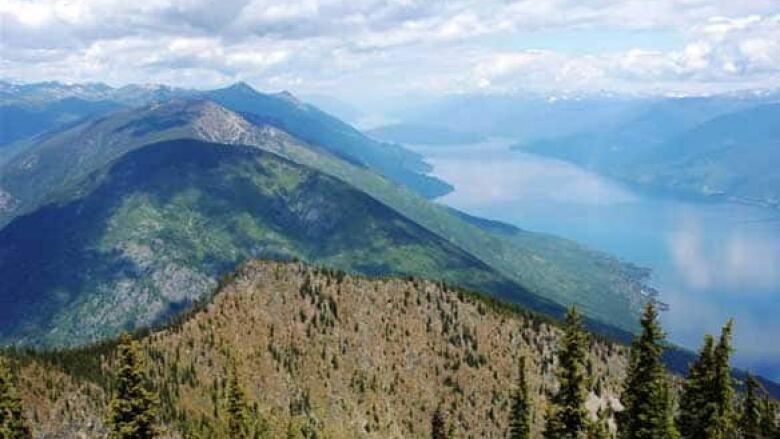Nature Conservancy of Canada aims to protect one million acres in B.C. by 2020
They've made it 98 per cent of the way to their goal, but the final two per cent isn't going to be cheap

As British Columbians consider where to make their year-end donations, the Nature Conservancy of Canada is calling on peopleto consider supporting itsReach a Million campaign.
The campaign aimsto permanently protectone million acres of ecologically valuable land in B.C. by Earth Day 2020 but the organization is struggling against the province's sky high real estate prices.
There are already 980,000 acres of land protected, according to the Nature Conservancy of Canada. Itestimates the remaining 20,000 acres will cost about $100 million.
The conservancy focuses on building relationships with private landowners of large tracts of land, such as ranchers, to make sure the property's ecology is properly preserved.
"It's a smart investment," said Michael Curnes, the organization's director of development for the B.C. region.
"We're talking about future generations of all species and one of the few things that makes the most sense is purchasing land and protecting it indefinitely."
Tax incentive
The federal government has a "very handsome" tax incentive for landowners who choose to put land into private conservation, according toCurnes.
"The Government of Canada's Ecological Gifts Program enables landowners to donate land or a partial interest in land (such as a conservation covenant) to qualified recipients such as land trusts and other nature conservation organizations that will care for it forever.
Landowners receive significant income tax benefits, including a donation receipt that can be applied against 100 percent of their taxable income for 11 years, and a 100 percent exemption from capital gains tax."
For every piece of land acquired, 20 per cent of it has to befundraisedto be putinto a permanent endowment fund to make sure the NCC can take care of the property indefinitely, said Curnes.
Climate change presents new challenge
A new challenge that has presented itself in the last few years is a shift in some species' migration patterns in light of climate change, Curnes explains, which means the conservancy has to predict which areas will need more protection in the future.
"We're finding that some species are beginning to migrate north in search of cooler temperatures, and so our science is trying to get ahead of that curve," he said.
"We look at how we can connect corridors, connect conserved areas so that wide-ranging species like grizzly bears or mountain caribou can move through those landscapes with very little interruption," Curnes said.
TheNCC'slargest piece of protected land in B.C. weighs in at 136,000 acres and holds a national record for the single largest purchase of land for private conservation.
The area known asDarkwoodsis located betweenCrestonand Nelson in theSelkirkMountains. It's home to one of the last herds of mountain caribou in the world and its alpine lakes feed into 17 separate watersheds, according to the NCCwebsite.
With files from the CBC's On The Coast.












_(720p).jpg)


 OFFICIAL HD MUSIC VIDEO.jpg)
.jpg)



























































































